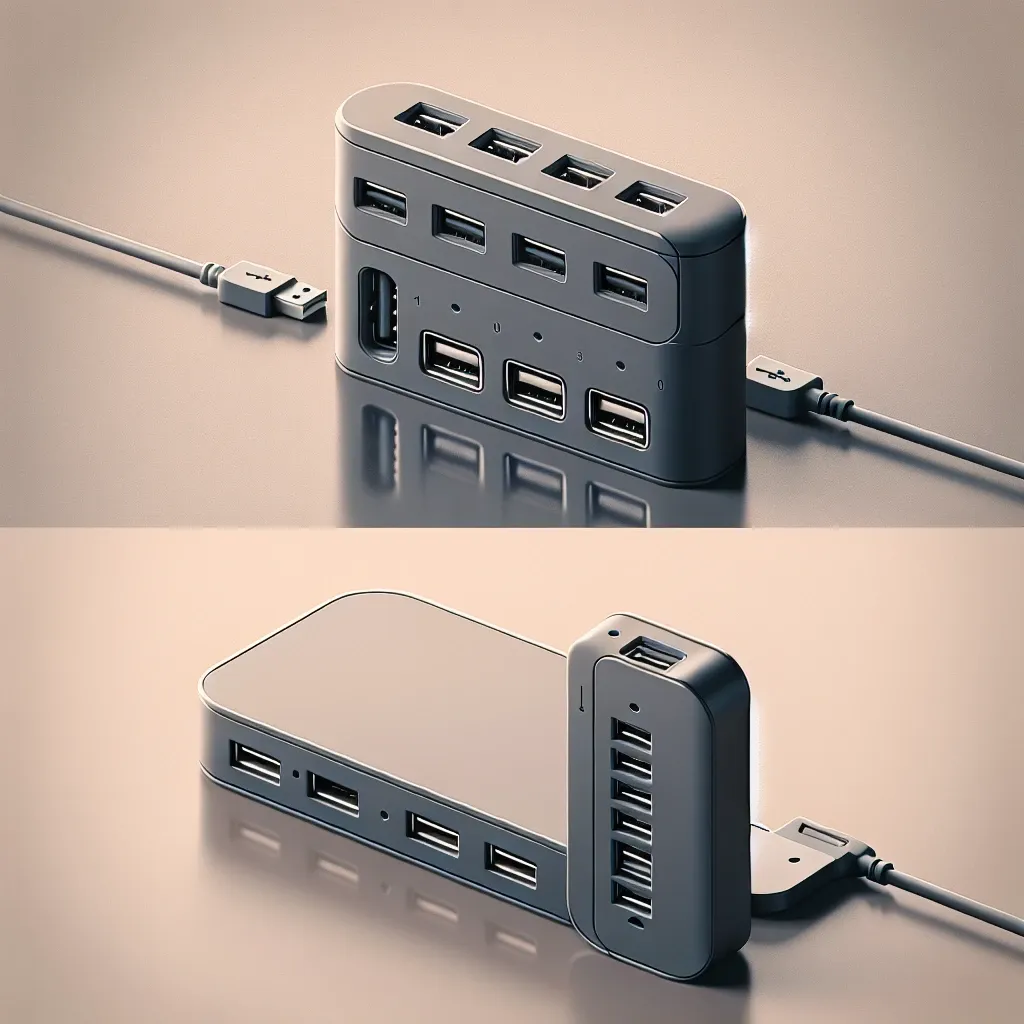In today’s digital age, peripheral devices are critical for enhancing productivity and extending the functionality of our primary computing devices. Among the popular options available for connectivity are USB hubs and docking stations. Although these two devices serve the purpose of expanding connectivity, they differ substantially in terms of functionality and use cases. This article delves into the key differences between a USB hub and a docking station, their respective benefits, and how to decide which one is right for you.
What is a USB Hub?
A USB hub is a small device that allows multiple USB devices to be connected to a single USB port on your computer. It acts as a splitter, taking the input from the computer’s USB port and providing multiple output USB ports to connect additional devices like keyboards, mice, printers, and external drives.
Types of USB Hubs
- Passive USB Hubs: These hubs draw power from the connected computer and do not have their own power supply. They are suitable for low-power devices like mice and keyboards.
- Active USB Hubs: These come with an external power adapter, providing sufficient power for high-power devices like external hard drives and high-speed USB accessories.
Advantages of USB Hubs
- Cost-Effective: Generally, USB hubs are less expensive than docking stations.
- Portability: They are compact and easy to carry around.
- Simplicity: Simple plug-and-play functionality without the need for additional software.
Limitations of USB Hubs
- Limited Power Supply: Passive hubs may struggle with high-power devices.
- Limited Functionality: Mostly provide USB connectivity and do not support other ports like HDMI or Ethernet.
What is a Docking Station?
A docking station is a more comprehensive device designed to expand the connectivity options of a laptop or computer significantly. It serves as a central hub that connects various types of ports like HDMI, Ethernet, USB, audio, and sometimes even SD card slots. Docking stations are especially useful for turning a laptop into a full-fledged desktop setup.
Types of Docking Stations
- Universal Docking Stations: These are compatible with a wide range of devices irrespective of brand or model. They typically connect via USB or USB-C.
- Brand-Specific Docking Stations: Designed for particular brands or models of laptops, offering tailored connectivity options.
Advantages of Docking Stations
- Versatility: Offers multiple types of ports, including USB, HDMI, Ethernet, and more.
- Power Delivery: Many docking stations can charge your laptop and connected devices simultaneously.
- Professionally Oriented: Ideal for turning a laptop into a desktop workstation.
Limitations of Docking Stations
- Cost: Generally more expensive compared to USB hubs.
- Portability: Bulkier and less portable than USB hubs.
Comparison Table
| Feature | USB Hub | Docking Station |
|---|---|---|
| Functionality | Expands USB ports | Expands multiple types of ports |
| Power Supply | Limited (depends on type – passive or active) | Can provide power to multiple devices and the laptop itself |
| Cost | Generally inexpensive | Generally more expensive |
| Portability | Highly portable | Less portable |
| Use Cases | General-purpose peripheral connections | Professional use, converting laptop to desktop |
When to Use a USB Hub
If your primary need is to extend the number of USB ports available for connecting low-power peripheral devices like keyboards, mice, USB flash drives, and basic gadgets, a USB hub is an ideal solution. They are cost-effective, easy to carry, and deliver straightforward connectivity for everyday tasks.
When to Use a Docking Station
If you require a comprehensive solution to create a full-fledged workstation with multiple types of ports including HDMI for monitors, Ethernet for wired internet, USB for peripherals, and audio ports, then a docking station is your go-to device. They are well-suited for professional environments where a laptop needs to function as a desktop, providing all the necessary connections in one place.
Conclusion
Both USB hubs and docking stations serve the purpose of expanding connectivity options for your computing devices, but they cater to different needs and scenarios. USB hubs are straightforward, affordable, and portable solutions for everyday peripheral connections. Docking stations, on the other hand, offer extensive connectivity options ideal for professional or multitasking environments. Identifying your specific requirements will help you choose the right device to boost your productivity and meet your connectivity needs.

